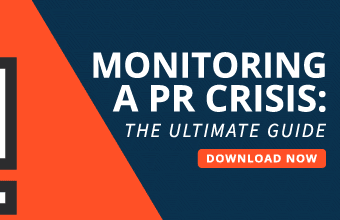Every business dreads a PR crisis. Not only can it result in a significant drop in brand reputation, customers, and profits, but it also has the potential to cause a company to shut down for good. This is why planning and being able to preempt a PR crisis is so important. This guide will detail how to achieve that goal.
Strengthen your security defenses
A lot of PR disasters could have been averted with just one element: improved cybersecurity. It goes without saying, but data leaks are one of the most damaging scenarios for a company’s reputation. This means you should be searching for ways to shore up your online defenses.
One way it can be boosted instantly is through local IT support. With local IT support, you add expertise and modern security systems to your infrastructure. It also results in your security not being something you have to handle entirely on your own, helping to reduce pressure in this area as a result. Plus, when partnering with a local IT provider, they will be able to respond appropriately—and in person—if a disaster did happen. They can send a team over to mitigate any damage caused.
Of course, some work in-house is still necessary to minimize security risks. You must train employees about cyber threats, monitor your systems, keep regular backups of your data, and so on.
Develop a crisis communications team
Even if you build up a strong foundation that reduces the possibility of a PR disaster, it’s important you don’t become overconfident. A major PR issue can strike any business at any time. Who knew a simple YouTube video posted by employees could cause so much damage to Domino’s Pizza? Although the brand recovered, public perception at the time quickly soured on the global pizza chain.
With all of this in mind, you must have a structure in place that will deal with a PR crisis sufficiently. This starts with a crisis communications team.
Now don’t be too worried. This does not involve having to hire specialists for the job. What it does involve, however, is identifying people within your organization that have the ability to effectively communicate to the public if a PR crisis does happen. The last thing you want is for the wrong things to be said after a disaster, leading to an even bigger problem than in the first place.
As for who should be part of your crisis communications team, an ideal situation would be to have a small collection of senior-level executives led by the company’s CEO. If applicable, it should also feature employees at the highest level from your marketing and communications departments.
What if you don’t have the resources for an in-house team? Again, it is possible to receive assistance from an outside firm. If a crisis occurs, they will be able to handle communication on your company’s behalf.
Anticipate potential disasters that could happen
Okay, there are certain disasters that can strike out of the blue. On the other hand, there are also scenarios that can be identified beforehand.
It is wise to try and recognize as many potential PR disasters as possible. The reason is simple: the more potential problems you identify, the better you can prepare to avoid them completely. For example, once problems have been spotted, you are able to evaluate your current operations—including business processes and corporate policies—to make changes to avert possible pitfalls.
Don’t be afraid to think outside the box. The more creative you get and the more scenarios you envisage, the more prepared you will ultimately be for possible PR disasters. After all, there are many different cases, some in unexpected areas, where a PR problem can develop into a crisis.
Get expert guidance
You have built a secure foundation. You have a crisis communications team. You have identified possible scenarios. The next step is to receive expert guidance and training to improve performance across the board.
Think about it: you may have a team of spokespeople. They might be great at communicating with eloquence and in a considerate manner. However, if someone hasn’t been in a situation where they have to counter media inquiries after a PR disaster, they can quickly be found out. Just an off-hand or thoughtless comment can see your reputation further plummet.
This is where the right training can be incredibly helpful. With guidance from experts, your communications team will know what to expect when those media inquiries are directed their way. Furthermore, experts will educate your team about how to respond effectively and navigate tricky situations.
Communicate your PR crisis policy to all employees
Communication is always essential when it comes to preparing for a PR crisis. This is applicable when discussing your PR crisis policy with everyone that works at your company. Simply put, all employees should be aware of what will happen during a possible PR disaster in terms of your organization’s response. That includes knowing all public messaging is to be handled by the crisis communications team.
Keep in mind that certain disasters can impact the day-to-day operations of employees. This is why your PR crisis policy should also account for your internal workforce, helping to limit disruptions as much as possible.
Continue to learn and revise
As part of your preparations, it is essential you don’t take your foot off the gas. You have to be ready for a potential PR disaster at all times. One way of doing this is to continually learn and revise your current response plan.
As mentioned already, PR disasters come in many different shapes and forms. By continually learning about possible issues and uncovering the unexpected, you further improve your position to respond in the best possible way.
This also includes revising your current plans, policies, and strategies. This should be done on at least an annual basis. After all, your business undergoes changes over time, while a crisis strategy can become outdated if left alone for too long.








